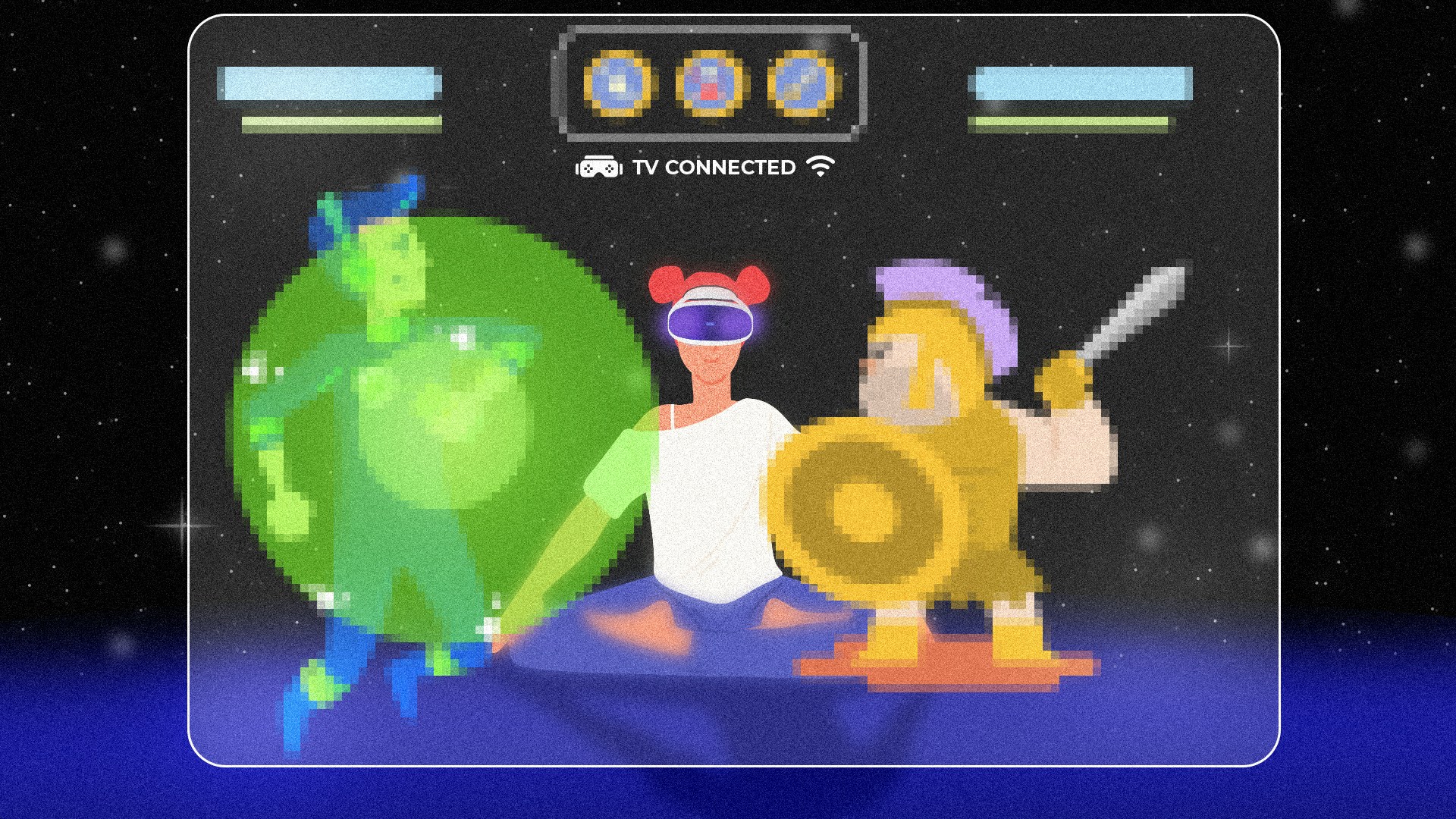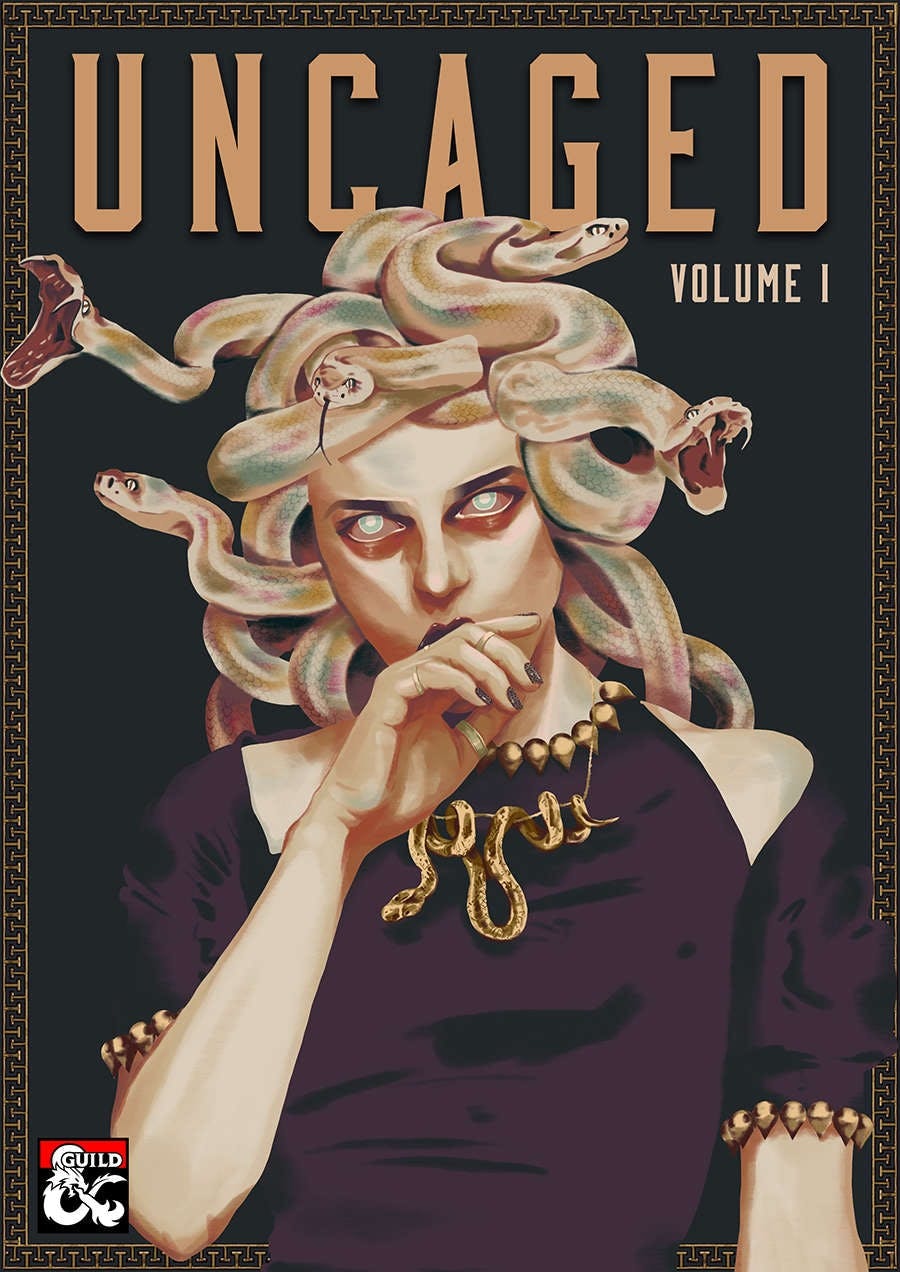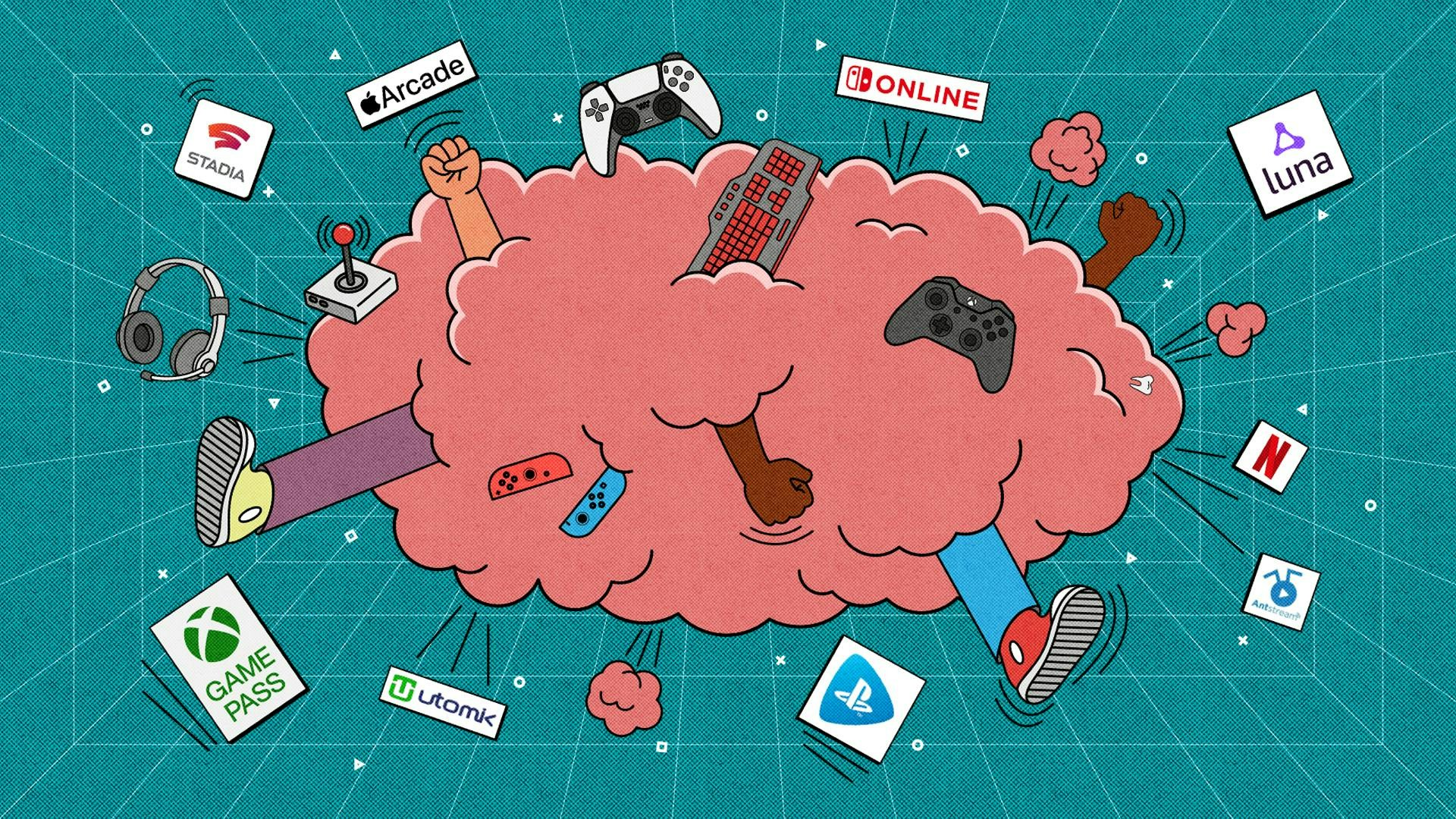Media Molecule's 'Dreams', and the promise of renown for Dreamers
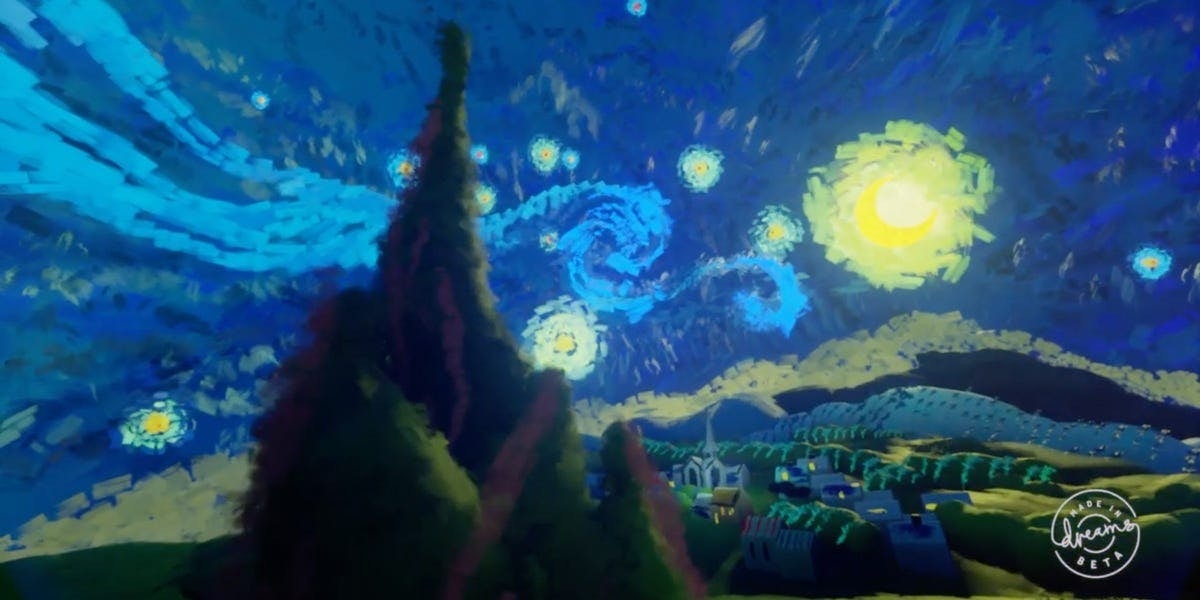
TOPICS
GamingSome games truly make you dream... and Media Molecule's Dreams is an extraordinary piece of software.
Some seven years in the making, Dreams provides gamers with a powerful set of creation tools that allow them to make practically anything they can imagine, from 3D platformers to elaborate music videos. In fact, the tools are so good that they are teaching players transferable skills which could help them to get a job in the games industry. And in the long run, users’ creations might even be sold as commercial products.
In the same way that self-published novels can become overnight hits, leading to lucrative publishing deals, it's only a matter of time before Dreams begets a breakout, runaway success.
Unprecedented accessibility
“Dreams to me is a platform and creation engine to make just about anything,” says Neon The Coder, a prominent member of the Dreams creative community. “You can make a game, you can make a TV show, you can make a movie, you can make anything you want. Dreams is a platform for creation.” Neon runs a YouTube channel where he regularly posts tutorials on tricky techniques. He also manages a Discord channel that acts as a focus for members of the Dreams community. He has closely followed the development of the game for years, and was an enthusiastic participant in the beta release of Dreams in April 2019, ahead of its official launch in February 2020.
His passion for the Dreams community is so all-encompassing, he won the prize for “Most Helpful Dreamer” at Media Molecule’s first annual Impy Awards in January 2020.
Neon says the creation tools in Dreams compare favourably with professional game engines like Unity and Unreal, as well as professional 3D modelling software like Blender. “The sculpting alone is better than anything out there on the PC platform,” he says, suggesting that Media Molecule could even separate the 3D modelling part and sell it as a professional tool.
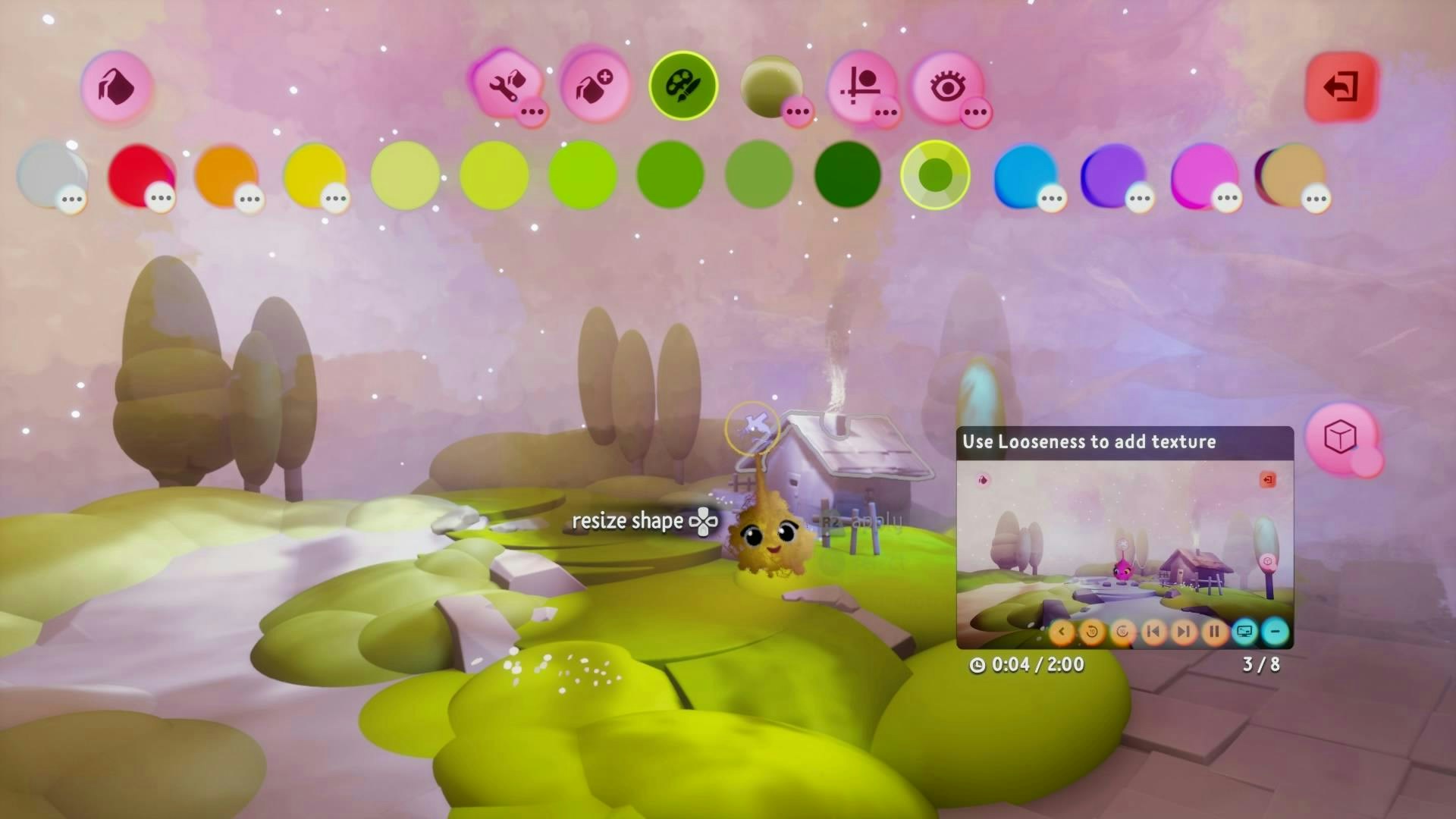
A dreamy palette that belies powerful control and features.
Astonishing creations
One advantage Dreams has over professional game-creation programmes is that it’s more accessible, packed with friendly, easy-to-understand tutorials on every aspect of coding, animation, modelling and sound design. This allows people to craft impressive builds in a short time, even with little or no previous experience in game design. “Blender is really intimidating,” Neon says, referring to another oft-used piece of gaming development software. “Dreams really breaks that barrier to entry in making games.”
The Dreamer BadRobo82 made a phenomenal demo called Wind Field, featuring an enormous swirling tornado and menacing clouds—a scene that could easily be mistaken for one from a professional video game worked on by hundreds of people.
Bad Robo's wind field.
BadRobo82, who comes from Poland and whose real name is Bogdan, has an artistic background and has “always been interested in graphics in computer games.” Before Dreams, he had never used a 3D graphics program. He praises the game’s incredible accessibility: “In Dreams, everything is very intuitive and organic. You don't need to have any programming knowledge, and the learning curve of each tool is very fluid and accessible.”
Other people have made stunning short films, like Rabbit and Boy. One Dreamer made a kart-racing game based on Bloodborne. Another created a photorealistic fry-up called The Full Beech Breakfast.
And even more fantastic projects are being cooked up by groups of Dreams players. Neon The Coder is a member of MAD-GFX, a group working on an ambitious sci-fi game called Europa Descent, set on one of Jupiter’s moons. Collaborations like this are part of the positive community surrounding Dreams, says Neon. “We try to help each other out. There's a lot of, you know, free love. I've been doing a lot of programming for [Europa Descent], and they pay me back by making characters in sculpts that I need in my personal projects. So yeah, I think it's a pretty great community where you can exchange the skills required.”
Perhaps the game’s biggest advantage is the Dreams community itself, Neon observes. Anything made by Dreamers, from sound effects to 3D models, can be used by other members of the community in their own creations, yielding a vast library of free game assets. “Everything you need is in the platform, which you can't say about anything else on the PC,” says Neon. “You're not gonna find, like, 1.000 assets for chairs for free on the Asset Store in Unity, but you're gonna find that in Dreams.”
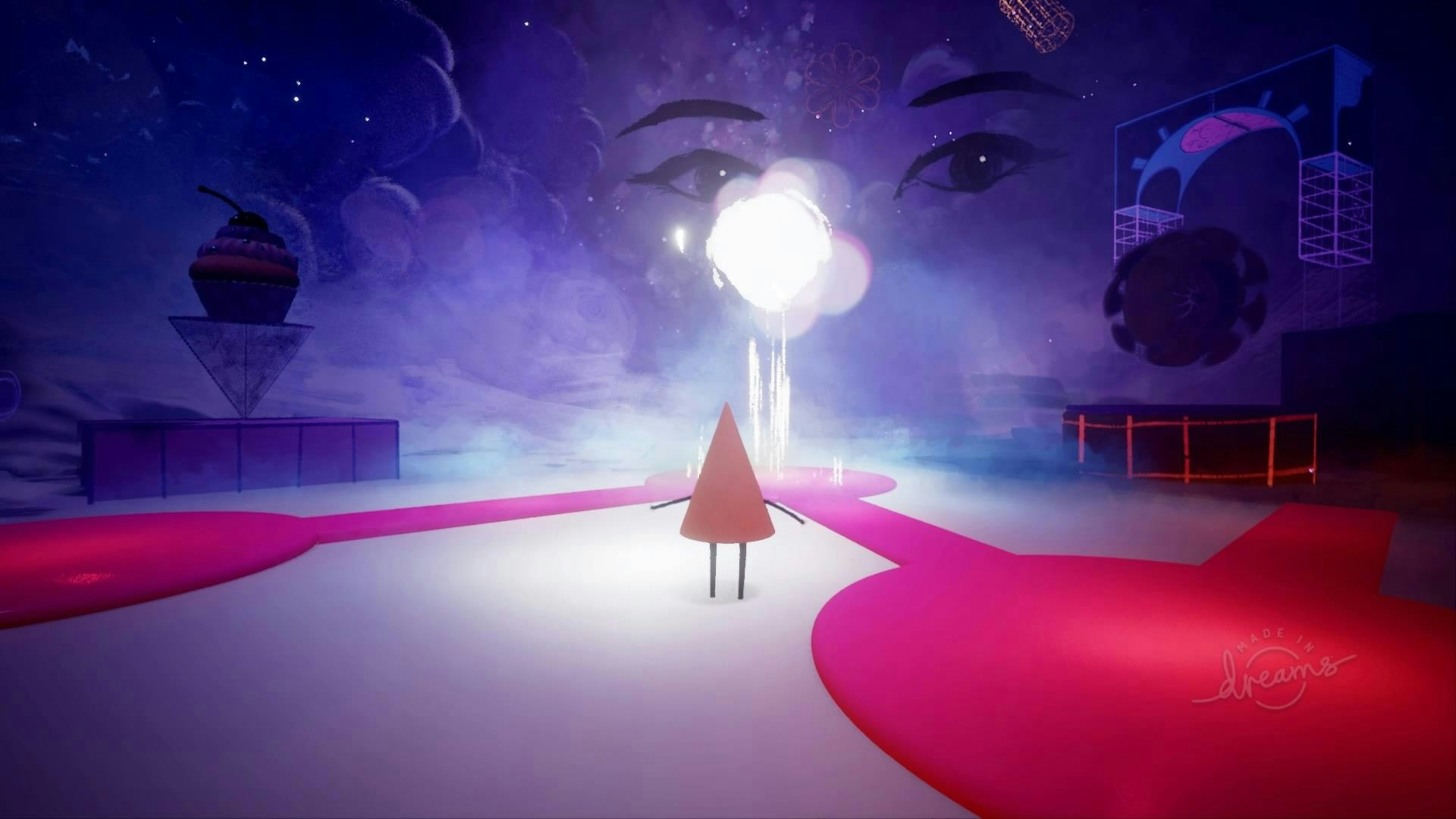
A Dreams homespace.
A route into industry
Because Dreams makes it so easy to try your hand at game development without prior knowledge or pricey software, Bogdan points out that the game's openness and sharing culture makes it “an ideal platform for catching people who have talent.”
Media Molecule has offered employment to players who displayed exceptional skill. j_plusb, aka Jamie Breeze, was behind popular Dreams titles like Llama Quest, and landed a job as community content creator at Media Molecule. Artist Martin Nebelong began freelancing for Media Molecule after making memorable Dreams creations. His Dreams version of the Unreal Engine 5 tech demo is particularly impressive.
Other Dreamers broke out of the Media Molecule bubble and found work elsewhere in the industry, like Jimmyjules153. “He had made a cool space side-scroller shooter thing, and I believe he got hired by a game company because of that,” says Neon. The space shooter was called Blade Gunner, and was the first time its creator ever attempted to make a game—yet it was impressive enough to be chosen by Media Molecule and featured on Dreams’ front page.
Jimmyjules153 told Escapist Magazine that, because of Blade Gunner, “I was approached by a European game development company who asked me to join their team. I’m excited for the future and where this may take me!”
Dreams also helped Neon gain a foothold in the games industry after trying to break in for a long time; winning the Impy Award may have helped him secure a job as a game tester. “As soon as I got this award and went for that game testing position, I got it. So I think it helped a lot with that," he said.
As a cheap, accessible way to create games, Dreams is likely to provide a proving ground for tomorrow’s programmers and artists. And who knows how many players, who have never previously thought about a job in the games industry, will be inspired to seek it as a career path after seeing their ideas come to life?
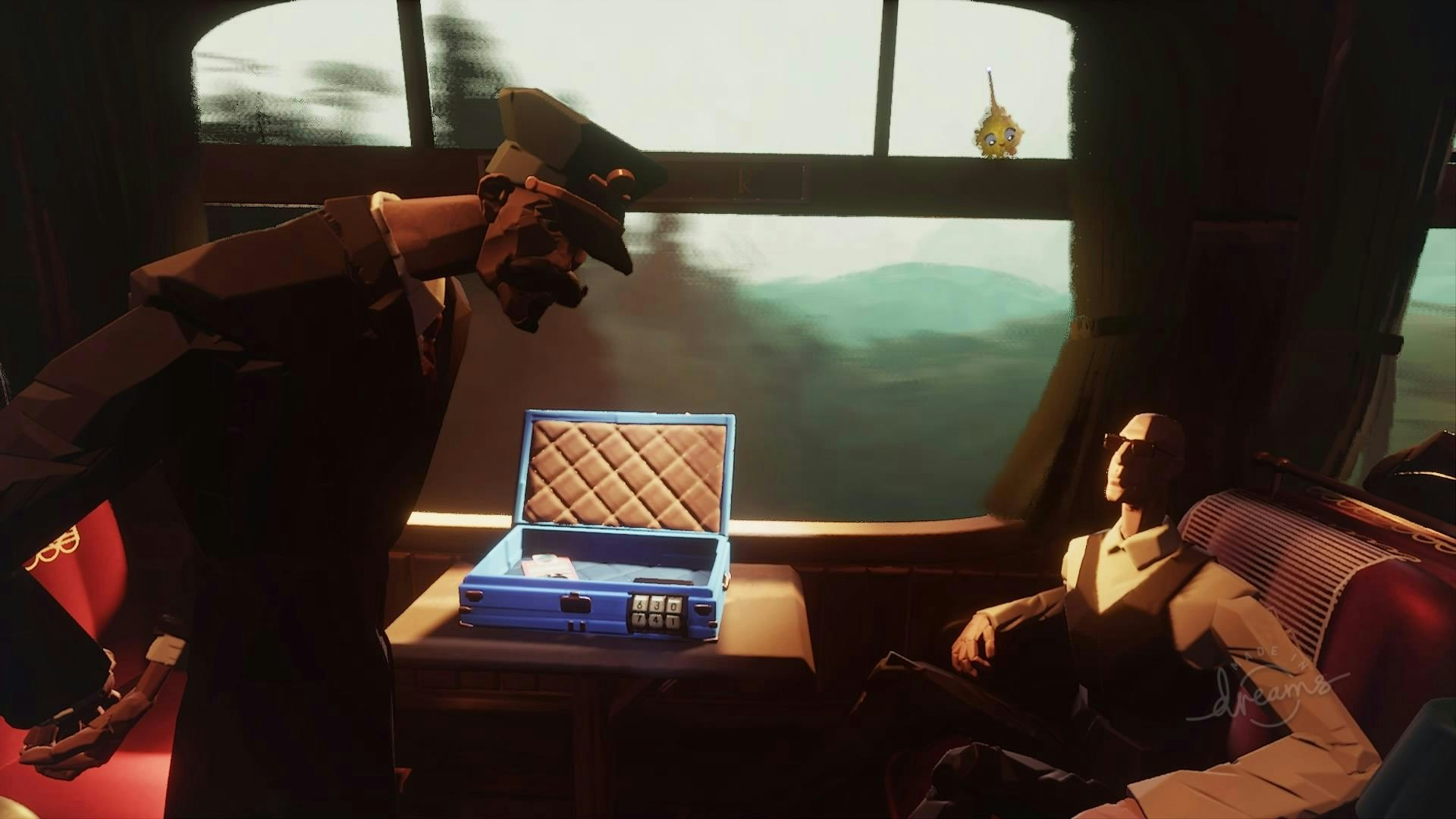
A travel scene from Dreams.
The question of money
The problem with allowing people to create anything they can imagine is that there are certain things Media Molecule and Sony would rather they didn’t… like creating games that use intellectual property (IP) owned by other companies. Players have created homages to things like Sonic the Hedgehog, Silent Hill and Aliens, which infringe on copyright laws. In most cases, Sony, for example, typically waits to receive a complaint from an IP holder before removing a creation that infringes copyright; Neon The Coder says the company is generally tolerant of games that use Sony-owned IP. But he notes that Nintendo in particular has been swift to request removal of any games that feature Mario and other Nintendo properties.
Copyright infringement is “definitely a problem in the community,” Neon admits, comparing the current state of Dreams to “how YouTube was back in the day before any of the tools for copyright management.” But many IP holders are likely to be content to overlook minor copyright infringements in Dreams, since players do not benefit financially from creations.
This situation could change in the future, however, if plans to introduce monetisation to Dreams come to fruition.
In March 2020, Media Molecule announced a Beta Evaluation programme which would allow users to export Dreams creations for “business purposes,” giving the examples of using an original creation “in your artwork or music portfolio, in a collage, or a design on your T-shirt.” Currently the programme is limited to applicants who meet strict criteria, and a Sony representative refused a request for an interview about the programme on the basis that Media Molecule is “still in the process of working on their Beta Evaluation and don’t have anything they can say about the subject at this time.”
But the programme perhaps gives an indication of the direction Dreams is taking. This future can’t come soon enough for Neon The Coder, who thinks that being able to sell Dreams creations “should have been the plan from the very beginning.”
Because Dreams is such a powerful creation tool, it’s frustrating for players to make something amazing that they are then unable to export or use elsewhere. “I talk to people in the community that are like, ‘What's the point? Why? Why use Dreams instead of Unity?’” Neon believes Dreams’ ease of use and enormous library of free assets are key selling points, but the inability to take a game you’ve made and sell it is a thorny issue. He notes that the Dreams End User Licence Agreement states that Sony “can use anything that you make in Dreams anytime, anywhere, for any reason.”
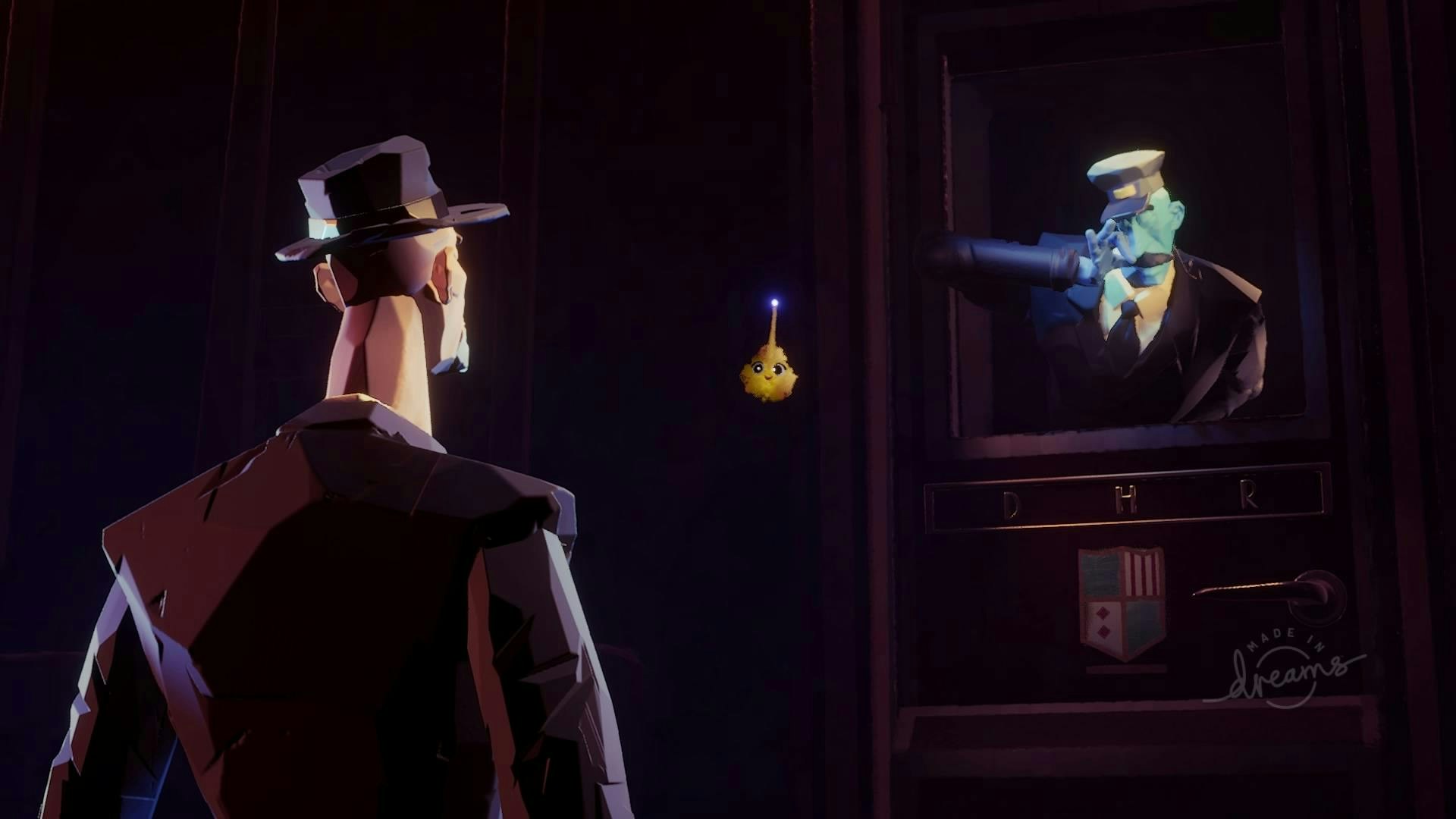
Through the looking glass
In it for the long haul
Still, there are signs that Media Molecule eventually intends for Dreams to become more akin to Unity as a platform for developing games. Media Molecule co-founder and creative director Mark Healey told VGC in February 2020 that “one of the obvious things that I think we should do as a no-brainer is handpick some of the content that’s brilliant and go through the motions of taking it out as a standalone product and putting it on the PSN Store.”
In October 2019, co-founder and art director Kareem Ettouney told GamesIndustry.biz that “we have in the long-term [plans for] exporting a standalone game outside of Dreams entirely—exporting to other devices and beyond,” adding that the studio is looking into creating a commercial licence for users to sell their creations. Ettouney also mentioned that Sony and Media Molecule could make Dreams available on the PC or Mac: “Our goal for Dreams is to last for 20 years, and keep expanding it and keep adding to it and keep improving it.”
After years of keeping its titles confined to the company’s own consoles, Sony began porting first-party games like Horizon: Zero Dawn on to the PC—and a PC port of Dreams could be huge. Opening the title’s powerful creation tools to a community that is already accustomed to modding games could unleash a storm of creative energy, and even—if the hinted-at commercial licence comes to pass—lead to Dreams rivalling engines like Unity as way to create commercially successful games, springboarding bedroom coders into overnight fame.
However, getting to the stage where Dreams creators can finally start selling games will be tricky. Not only is there the ongoing question of how to police copyright infringement; there’s the fact that individual creations in Dreams could be composed of assets made and modified by dozens, if not hundreds, of other people. What happens if, say, a chair created by one player is used in another's creation, which is then exported and sold? Should the chair creator get a slice of the profits?
Dreams keeps track of who created and modified each asset through its “genealogy” function, so it would be relatively easy to trace creators of objects—although implementing a payment system is another matter. Neon The Coder thinks a far easier option would be a simple tick-box for all users, indicating whether they agree for their assets to be used in a commercial creation, with or without compensation, much like Creative Commons.
However complicated it might be from a legal standpoint, Neon is convinced that the ability to create commercial products should be an essential part of Dreams’ future. “I feel that if we truly want to move forward into a more consumer-based creative atmosphere, we need to allow creators to experiment with monetising their creations,” he argues.
Bogdan agrees, seeing commercialisation as almost inevitable. “I think that sooner or later it will happen in some form. It would certainly take creations made in Dreams to a more professional level, because let's face it, making good games takes time and money.”
Media Molecule has continued to update the game since its launch. The studio added PlayStation VR support in June 2020, prompting a flurry of impressively immersive VR creations. The next big milestone will be the addition of online multiplayer support. The potential is enormous.
22 Jan 2021
-
Lewis Packwood
All screenshots courtesy of author, with the exception of the header image, courtesy of TheOneironaut.
DATA-DRIVEN TECH & SOCIAL TRENDS. DISCOVERED WEEKLY. DELIVERED TO YOUR INBOX.
02/03
Related Insights
03/03
L’Atelier is a data intelligence company based in Paris.
We use advanced machine learning and generative AI to identify emerging technologies and analyse their impact on countries, companies, and capital.
